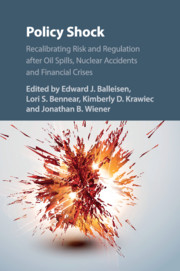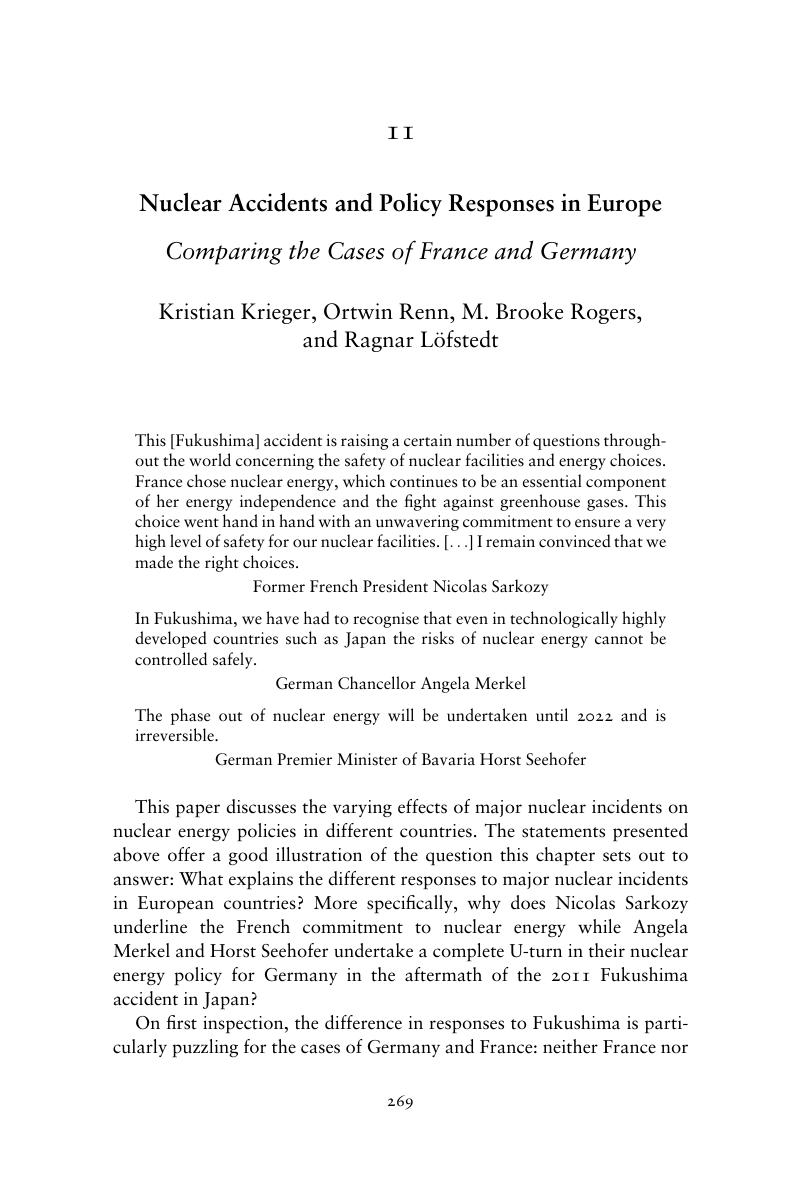 Policy Shock
Policy Shock Book contents
- Policy Shock
- Policy Shock
- Copyright page
- Contents
- Figures
- Tables
- Boxes
- Contributors
- Acknowledgments
- 1 Introduction
- Part I The Conceptual Terrain of Crises and Risk Perceptions
- Part II Case Studies on Offshore Oil Spills
- Part III Case Studies on Nuclear Accidents
- 10 Recalibrating Risks of Nuclear Power
- 11 Nuclear Accidents and Policy Responses in Europe
- 12 Public Attitudes and Institutional Changes in Japan following Nuclear Accidents
- Part IV Case Studies of Financial Crises
- Part V Conclusions
- Index
- References
11 - Nuclear Accidents and Policy Responses in Europe
Comparing the Cases of France and Germany
from Part III - Case Studies on Nuclear Accidents
Published online by Cambridge University Press: 24 October 2017
- Policy Shock
- Policy Shock
- Copyright page
- Contents
- Figures
- Tables
- Boxes
- Contributors
- Acknowledgments
- 1 Introduction
- Part I The Conceptual Terrain of Crises and Risk Perceptions
- Part II Case Studies on Offshore Oil Spills
- Part III Case Studies on Nuclear Accidents
- 10 Recalibrating Risks of Nuclear Power
- 11 Nuclear Accidents and Policy Responses in Europe
- 12 Public Attitudes and Institutional Changes in Japan following Nuclear Accidents
- Part IV Case Studies of Financial Crises
- Part V Conclusions
- Index
- References
Summary

- Type
- Chapter
- Information
- Policy ShockRecalibrating Risk and Regulation after Oil Spills, Nuclear Accidents and Financial Crises, pp. 245 - 268Publisher: Cambridge University PressPrint publication year: 2017
